The main economic advantage of tourism-related activities is that they contribute to developing countries’ three high-priority goals: income generation, job creation, and foreign exchange earnings. The tourism sector will play an important role in this regard as a driving force for economic development. The effect this industry can have depends on the specific characteristics of each country at various stages of economic development. Given the complexity of tourism consumption, its economic impact is widely felt in other sectors, leading to accelerated development goals in each case.
A major challenge in defining the tourism sector’s boundaries is deciding what investment costs should be related to tourism growth. Although international agencies have not historically regarded tourism as an “industry” in terms of national accounting, it includes a range of goods and services that are directly offered to tourists and would not otherwise have been provided.
It is difficult to analyze and prepare for tourism because of its interdependence with other economic sectors. The lack of reliable statistical data hinders both the recognition of the processes by which tourism generates growth and its development potential. Nonetheless, the role of tourism in competing for limited investment funds has been identified in those cases where studies have been carried out and work has preceded planning. Long-term tourism development programs have been designed in these situations.
Investment needs in the development of nature and heritage tourism are, in some respects, different from the traditional development of hotels. There may be more need for improved access and modes of development that do not interfere with sensitive habitats or historical areas.
The Institute will provide new perspectives on the relative significance of travel and tourism as well as some of its unique advantages in driving global economic growth:
- Travel and tourism rank high among sectors in terms of their contribution to GDP, employment, and exports.
- Travel and tourism growth trends and prospects exceed those of other key sectors.
- Travel and tourism generate substantial indirect benefits through their linkages to other sectors.
- Travel and tourism are highly dispersed within national economies, and their benefits are widely distributed.
- Travel and tourism drive infrastructure investment that benefits other industries.
- Investments in well-designed destination marketing consistently produce strong economic returns.

Our Mission
A well-executed tourism strategy is a formidable economic multiplier for a nation, and GTF aims to assist by:
Building sustainable and eco-friendly tourism communities.
Communicating the host country’s untold stories to a wide and diverse global audience.
Reducing socio-economic disparities by driving tourism investments and creating jobs in critical areas.

Decreasing Travel Costs: Elements of Supply and Demand
There are primary factors affecting the level of demand for nature and heritage tourism, namely overall growth in tourism, growth in specialty travel, and increasing environmental awareness and concern. Each of these influences has a number of affected elements. For example, in terms of tourism as a whole, factors such as population growth, rising income and employment, shorter working weeks in various parts of the world, and the ever-growing convergence of world economies and societies are expected to continue to rise more quickly than global economic production.
Public and Private Sector Involvement
Tourism is mostly a private sector activity, but the timely provision of hotels and other visitor amenities, such as entertainment, food, and sports facilities, requires public sector participation in the form of infrastructure, promotional support, and fiscal and financial opportunities to attract private investment to the sector.
Availability of Credit
Another important factor directly related to tourism facilities is the availability of appropriate credit terms, which is an integral catalyst for sound investment in tourism. In some countries where this credit availability is not provided by the private financial system, the public sector offers credit lines for investment in tourism.

Tourist Destination Attributes
The tourism industry offers a multi-dimensional asset that, if actively promoted, is likely to lead to market trend changes and generate new demand for services. However, as in any other area of economic activity, a minimum set of conditions must be in place to make an investment feasible. In this sense, it is important to identify the characteristics of a destination area needed to attract tourism projects and make them viable. At least six separate categories are associated with these attributes: climate, natural resources, facilities, utilities, culture, and socio-economic and political factors.
Tourism and GDP
Travel and Tourism created $8.8 trillion in 2019 and funded 319 million jobs worldwide. This illustrates Travel & Tourism’s power as a vehicle for governments to create wealth while providing jobs that support women, youth, and other often disadvantaged groups in society. In reality, Travel & Tourism now represents one in five of all new jobs created worldwide and is expected to contribute 100 million new jobs over the next ten years, reaching 421 million jobs by 2029.
Tourism: The Most Important Economic Activity
Tourism has become the most important economic activity for many countries, particularly as the biggest foreign exchange earner. It also illustrates the growing importance of recreation and leisure as a result of rising income levels around the world. Unlike many goods and services, tourism has no exact alternatives, which means that the market for holidays should grow rather than be replaced by something else. However, political boundaries that separate states, metropolitan areas, or other natural market areas can be an issue.
Tourism has become a major sector impacting the growth of a country’s economy. The main benefits of tourism are revenue generation and job creation. For many regions and countries, it is the most important source of income. A national economy’s ability to benefit from tourism depends on the availability of investment to build the necessary infrastructure and its capacity to meet tourists’ needs.





